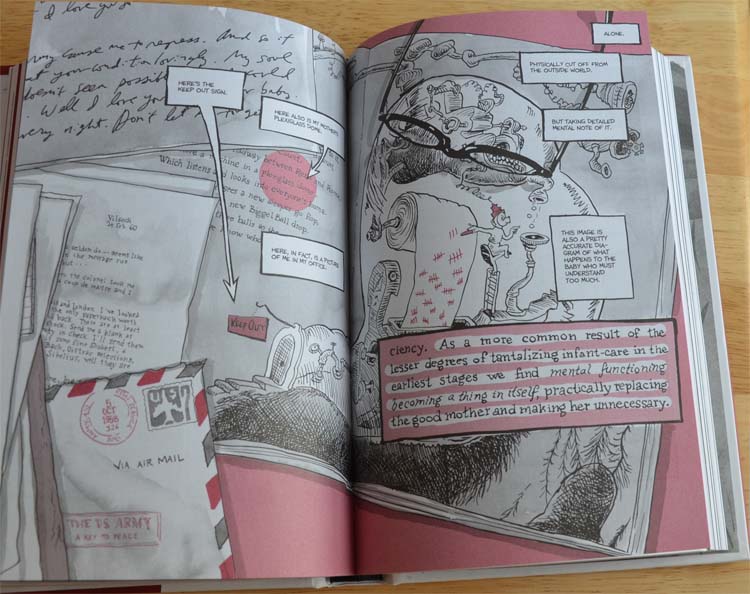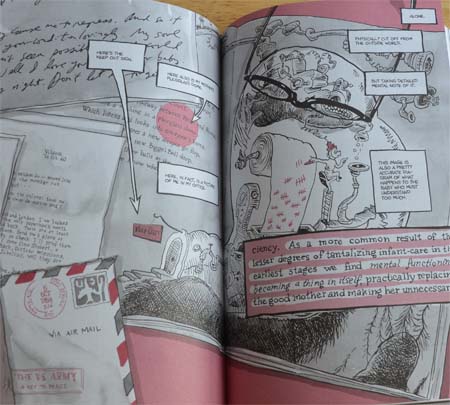Elizabeth L. Cline appeared on The Bat Segundo Show #462. She is most recently the author of Overdressed.
Listen: Play in new window | Download
Condition of Mr. Segundo: Rubbing his hands over a personal project: a tequila haul video now in development.
Author: Elizabeth L. Cline
Subjects Discussed: The disposability of clothes, why so many clothes at the Quincy Street Salvation Army gets thrown away, fast fashion industries eyeballing China, comparisons between the fashion industry and the food industry, selling high volume product for low prices, Forever 21’s markup, Vebelenian consumption and free choice, the psychology of cheap, the haul video phenomenon, Dan Ariely’s behavioral economics, discomfort with the clothes that you’re wearing, being an “expert consumer,” Sex and the City, wanting quantity over quality, overconsumption, buying cheap items that fall apart, H&M’s addictive qualities, a 2011 Well-Spent comment thread with consumers and fashion designer Eunice Lee, what remains of domestic manufacturing, consumer price expectations, unemployment and the collapse of the garment and textile industries, how the increased price of labor in China has affected the U.S. manufacturing base, Dalma Dress Manufacturing Company, Michael DiPalma’s “labor is labor,” the Dynotex factory in Greenpoint, domestic gown markets being pushed into the luxury gowns, finding the compromise between a luxury gown and mass-production, Levi closing its last U.S. factory in 2003, the new definition of “high-end,” premium denim produced in Los Angeles, very small Los Angeles factories vs. very large Chinese factories, playing the blame game, frustrated fashion designers, the bottom line of budget fashion chains, why H&M pins the blame on consumers, the Hubbert’s Peak of fashion, new efforts to hook Chinese consumers on disposable fashion, the impact of NAFTA and the expiration of the Multi Fibre Agreement, massive imports of Chinese cotton trousers, garment protectionist measures, the unskilled labor market, spinning heads, New York’s crackdown on soft drink sizes, the cultural impact of Michelle Obama wearing a Target dress, the Slow Clothing Movement, Kate Middleton being chided for wearing the same dress twice, the rampant copying within the fashion industry, the Design Piracy Protection Act, low wages paid to Chinese workers, the impact of labor exploitation on fashion, encouraging people to sew, traveling seamstresses, and raising an army of fashion alterers.
EXCERPT FROM SHOW:
Cline: I would say we’ve got a First Lady who is running around bragging about the fact that she wears Target and people applaud her for that. And our garment industry declined. We made 50% of our clothes here in 1990. And now we make between 2 and 3%. So the fact that we have someone in office and we’re clapping whenever they wear imported clothing. And then you’ve got this flip side reality of giving away an entire industry. That to me is what is perhaps most shocking in this situation. I mean, there are other kinds of consequences of cheap fashion. But, for me, a lot of it comes down to what’s happened to the economy. And I talk about in the book how the clothing industry is a good economic indicator. It’s like, if there’s not a middle market in the fashion industry, that usually means that there’s not a middle-class in society. And we saw this in the 1920s as well. The ready-to-wear market was split between high-end and super cheap. And that’s because there were really rich people. So when you see the fashion industry without a middle market, that’s usually a good sign that there’s not a middle-class. And the two are so tied together, it’s kind of scary.
Correspondent: You were chiding me earlier about seeking someone to point the finger at. But it seems to me that you’re doing the same thing by saying, “Wow, we now celebrate the fact that Michelle Obama wears Target.” Only fifteen years before, we would point the finger at Kathie Lee Gifford and say, “You complete hypocrite. You’re producing this clothing line and these kids are doing backbreaking labor to provide you with your clothes.” Obviously, we’ve advanced far along the lines in a matter of fifteen to twenty years. Do we have to punish someone to actually solve the problem? Do we have to find a scapegoat? Or is there a more constructive, less vigilante mob way with which to encourage consumers to use whatever rights they still have to not opt for disposable clothing? Perhaps something along the lines of The Slow Clothing Movement that you outline at the end of this book. Or perhaps encouraging people — even people who are bad with sewing machines like myself — to go ahead and replace their particular clothes.
Cline: I mean, I think that people are in the spotlight, whether it’s someone like Kate Middleton, who’s always in the news because she wore the same thing twice in ten days. I think that that does as much for the issues that I’m talking about as a book like mine does. Just because she’s such a high-profile person. And Michelle Obama, the reason why I single her out is because her fashion has probably been the most talked about aspect of her reign, if you will, as First Lady. And people take their cues from her. She is reinforcing this high/low dichotomy that we’ve got in the fashion industry now. What you’re supposed to do, according to the fashion magazines, is you splurge on your Louis Vuitton bag, but then you wear a Target dress. And that’s American fashion. That’s considered American fashion now. Where is any of that made? And why did you overpay for a pocketbook? And why did you underpay for a dress? That’s not helping anything.
Correspondent: There’s also one interesting thing that I didn’t really know about until I read your book. And that is this fascinating copyright problem in the fashion industry. I mean, it makes total sense once you lay it on the line. Of course, there have been spies at fashion shows. But we’re dealing with an industry in which everybody copies everybody and there is no absolute control over this. You point out Ralph Lauren’s quote, that he owes his career to forty-five years of copying. There isn’t copyright protection. Tom Ford, Guy Trebay even had to confess that there would be no fashion if you adopted legal rules. Now you have the Internet today. You have high-def cameras that are instantly taking in any fashion show, any exposition. You have tailors on the ready, ready to reproduce whatever it is that is being made somewhere else in the world. And that to me is absolutely fascinating. It’s a magnificent counterfeit industry. There were efforts to pass varying versions of the Design Piracy Prohibition Act. They didn’t take, however. And what was interesting about that is that with the bill’s supporters, a few of them were actually caught copying clothes made by independent designers. I thought that was hilarious. I’m wondering. Are there any signs right now in 2012 — it’s been a while since you wrote the book, maybe about a year or so — are there any signs now that this additional copying has had a drastic effect on the fashion industry? That it’s actually becoming more a problem? Or are things relatively stable? And how does this compare to some of the globalization concerns we were just talking about?
Cline: I think copying is a problem. Because it feeds this surplus of clothing. I mean, copying is what creates trends, right? Trends sell fashion today. So it just enables this speeding up of the fashion industry. So it’s like, even if you’re not copying exactly, if you’re copying something almost exactly — and every store does that. So this copyright protection bill that’s moving through Congress is really only going to eliminate exact copies. Exact replicas. And that should happen. But that’s not really going to stop the fact that you can change a button or a stripe or something and then that’s totally fine. So my whole point in bringing that up was that all these retailers are looking at each other and copying each other, and the system is just moving forward faster and faster and faster because of that.
Correspondent: But, Elizabeth, the fashion information wants to be free.
Cline: (laughs) It does. It does. You know, when I was in China, a lot of the factories there, they would — I would go into a sample room, which is where they have all the designs that they’ve made hanging up on a rack. And they would take something off the rack and be like, “Do you want us to copy this?” That’s how easy it is. And one time that happened, it was actually a Forever 21 garment. Which I thought was hilarious. I was like, okay, I’m being given the opportunity to rip off the ultimate ripoff artist. Because I went undercover as a garment buyer. I guess I should have said that at the beginning. So they were trying to sell me designs. And it can happen on that level. But it can also be as easy as someone in the U.S. in a design office emailing a photo to the factory and the factory just copies it there. It’s so easy to do now. And Forever 21 copying these other companies’ stores that copy designers, I think it’s really mostly a threat right now to independent desginers, as you were saying. I really try and support independent designers. And they’re having a hard time. Because consumers think that their price points is too high. Because they don’t understand the ways and the mechanisms of the fashion industry. But they’re also like, “Why wouldn’t I just go to Forever 21 and get it for $20 instead?”
Correspondent: We should really talk about some of what you observed in China. Especially the labor exploitation and so forth. You say in the book that they have these facilities that they offered, and your impression was that this was part of the whole drill whenever any American comes to visit. Do you feel that you got a sufficiently accurate idea of what was going on there? What do you feel is the takeaway, laborwise, from what you saw?
Cline: I actually decided when I knew I was going to write the book that I wasn’t going to write a sweatshop book. Because so many of them have been written. And I feel that people know more or less what’s going on. That I didn’t really have a whole lot to contribute to that story. I was really there to see how the business side operates. And absolutely, I think I got an accurate reflection. Because there was no reason for them to hide those things from me. What I would say about the labor conditions is that the fashion industry has been in the spotlight now for almost twenty years for labor abuses overseas. Domestically, going back to 1911. So the factories in China that I saw — and again they knew I was an American; I’m sure I was shown the better factories — were clearly products of a lot of, I guess I would say, cleanup. Because people are really afraid of getting busted for sweatshops now. Compared to American factories, the Chinese factories are very clean. Very organized. They have the latest machinery. All the fire exits are properly marked. There are fire extinguishers on the walls. So that kind of stuff, they’ve got their ducks in a row. And you can really tell that they’ve had to do that in order to do business with the West. I think instead of people looking for really extreme examples of human rights violations, they should concentrate on the wages being paid to these people. And in the garment industry, that’s poverty wages everywhere, except for in the West. So to me, that’s what’s not acceptable. I mean, you can pay someone the minimum wage in China and that’s a poverty wage. And that’s perfectly legal. That would not be considered a sweatshop story. But that’s the reality.
Correspondent: So how do we get some of these young women who make these haul videos to understand that there is tremendous poverty attached to what they get to enjoy at an H&M or any one of these particular stores?
Cline: I would like to think that people, especially people of the generation behind me — I’m 31 — a lot of them are already conscientious consumers that care about the environment and they care about human rights. But it’s like they need to be given a way to vote with their dollars. For example, if H&M had a fair trade section or a living wage tag on some of their clothes, I think that they would support that. So I think that hopefully, with a book like mine, more stories will come out. And they’ll start to say, “Go to these retailers” and “Hey! I like the designs. I want to keep shopping here. But you guys have really got to do more to earn my loyalty.”
Correspondent: I am fascinated by the idea that everything has become more disposable. That it’s a matter of buying something. It’s not going to last. And it’s going to be thrown away. And we were alluding earlier that one of the solutions to this is encouraging people to sew, to fix up their footwear, to fix up their clothes. On the other hand, I look to something like that and I say to myself, “Well, aside from the fact that sewing a button for me is something equivalent to Euclidean geometry…”
Cline: (laughs)
Correspondent: I can do it! But it takes a long time. There’s also the time factor. If I want to go ahead and fix up clothes, let’s say that’s ten hours of my time. If I value my time at $15 an hour, that’s $150. I could easily go to a store and instantly pay less for my time. What fundamentally needs to change in order to get us into this durability mode? Is there any kind of natural place for us to stop short of all of us wearing cardboard clothes or something? Or stuff made out of paper that’s going to fall apart? I guess, the no iron shirts would be close to that, right?
Cline: I know. It’s amazing how everything’s wrinkle free. You don’t have to do anything. It’s just bionic at this point. But sewing is definitely not about saving yourself time or even really about durability. People are getting back into sewing because it’s satisfying. And it’s not for everyone. But the people who do it love it because it’s just a way to connect with your clothes. We live our lives in clothes. So I don’t think it’s that surprising that people are looking for ways to interact with it in a more satisfying or meaningful way. And sewing is one way to do that. And I certainly do not have the skill. I will never be able to make most of what I wear. But I do enjoy being able to alter and tailor the things that I wear, and customize the things that I wear. And I think that that’s a perfectly reasonable thing to expect more people to get into. Just because it feels good. And it makes you like your clothes better. It honestly does.
Correspondent: So what we really need is an army of fashion alterers to go around and knock on people’s doors and say, “Are you happy with your clothes? We can alter these clothes to fit you for a small, modest fee.” And then people realize, “Oh! Well, I like these clothes better!” Maybe this is part of the solution? Maybe this is the way to durability?
Cline: Yes.
Correspondent: I think we have an idea here!
Cline: I just found out about a traveling seamstress in Williamsburg.
Correspondent: Really?
Cline: I was like, “Thank you!” Because I’m really lazy. Come to my house and fix everything of my own.
Correspondent: (laughs) So we have to bring the seamstresses and the tailors — it will be like how the old doctors used to show up to your home for in-house appointments. I guess this is the way to do it?
Cline: Maybe that will be my next career move.
The Bat Segundo Show #462: Elizabeth L. Cline (Download MP3)



 Bechdel: Oh, I think of that Dr. Seuss spread, which was a purely visually driven sequence. I’m talking about one of my favorite childhood books, which was Dr. Seuss’s Sleep Book.
Bechdel: Oh, I think of that Dr. Seuss spread, which was a purely visually driven sequence. I’m talking about one of my favorite childhood books, which was Dr. Seuss’s Sleep Book. 
